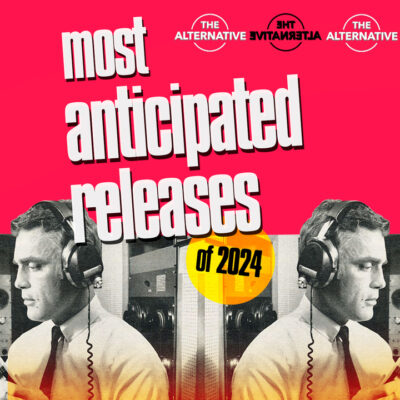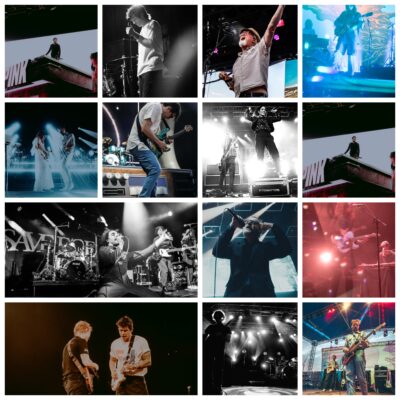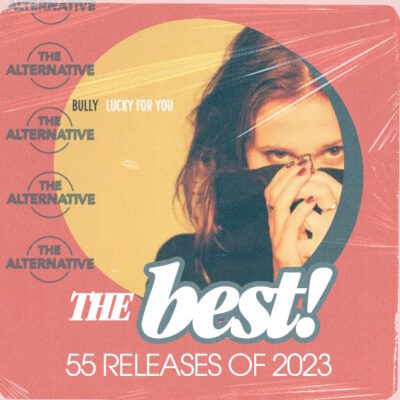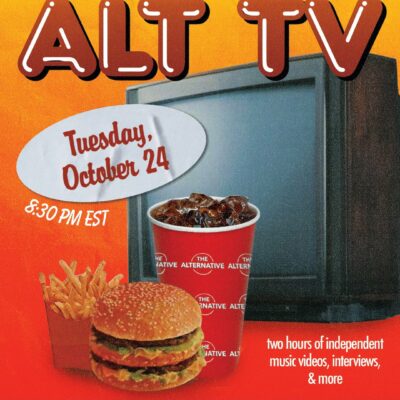Interview: Spirit Night on re-releasing ‘Shame’
Posted: by admin

Photo by Andy Pickens
Spirit Night is the solo moniker former TWIABP guitarist Dylan Balliett has been operating under since 2010’s What We Will Be. Today marks the official re-release of Balliett’s most ambitious record to date, Shame. Spanning 10 tracks, the record features a trying narrative focusing on the intricacies of mental health and it’s result on relationships in a manner similar to the likes of Leonard Cohen and Bruce Springsteen. I had the chance to speak with Balliett about his influences, favorite tracks, and upcoming plans for 2018. Take a read below:
Your new record Shame is officially released today. How does it feel to finally have this album out? I know it saw an original release around the same time that TWIABP released Harmlessness, is there a reason for the re-release now?
The promotional rollout of the album was completely bungled at the time it was first released and it never received anywhere near the listenership I had anticipated, even as the years went by. I don’t make any money from Spirit Night — my only goal in releasing these records to the public is to have people listen to and engage with them — and so it was a pretty massive disappointment after spending close to a year working on just the recording and even more time than that writing it. Especially when I personally considered the record to be this grand personal statement in which I dragged every dark thing that bothered me about myself out into the light to address it directly. I thought it was the best, most cohesive thing I’d made up to that point and thought I would be content dying with Shame as my artistic legacy. And then no one heard it.
I always liked Dave Klug’s first mix a lot, but I began to wonder obsessively if something about it was turning people off from the album. I realized a new, cleaner mix would both justify a reissue but also maybe catch people’s attention more.
On a more personal note though, there is some amount of symbolism in me releasing an overlooked album as I joined a popular band and then rereleasing an arguably “improved” version after leaving. It’s a reminder to myself that I’ve been functioning independently this whole time and also that I’ve made massive strides in dealing with my real life shame issues since its initial release. My mindset between the two periods is represented in both the mixes and the album covers: one is dark, warm, and dirty and the other is bright, clean, and exudes confidence (apparently some people don’t like pink??).
What are the major differences between the original version and the version we’re hearing now?
The recordings are exactly the same. Only the mixes and masters are different. On the original mix, done by Dave Klug, who also recorded the entire album, we were going for a very warm, reverb-heavy sound where a lot of the instruments kind of mashed together in a way that it sounded like a band playing live.
The new mix sounds quite a lot like the original, but everything is much smoother and cleaner. The vocals are processed in a way where it sounds like I actually have a good singing voice and it makes the lyrics the point of focus, which I understand now is essential for an album like this. It’s also a bit punchier and just sounds like a more accessible version of the same record.
One interesting thing that happened during the process is Chris Teti, who did the new mix, unknowingly added old overdubs that we had cut from the original mix because they had never been deleted, just muted. So some auxiliary percussion and organ overdubs that we did not like in 2015 wound up back in the album and sound great to us now. Fingers crossed this leads to message board arguments about the clave version of “In Case You Come Back” vs. the no-clave version of “In Case You Come Back” for years to come.
I love both versions of Shame. Listening to them back to back, I’d say the new version is the first version a new listener/fan should start with, but once you’re familiar with the album, listen to the rawer early version — you might like it better!
Speaking of TWIABP, how does the songwriting process for Spirit Night compare? Does the material differ drastically between such opposite environments?
It doesn’t compare at all, honestly. Writing with TWIABP was the first time I’ve ever written in a totally collaborative way, which I didn’t even think was possible based on all of my experiences being in bands in my life, but it almost always worked and I didn’t have to feel the weight of the world on my shoulders regarding how songs turned out (though I would occasionally become a control freak in the final hour).
Writing for Spirit Night is usually coming up with a chord progression, a vocal melody, and one good line of lyrics, recording it as an iTunes memo, and then eventually getting around to finishing it when it feels like time to make a new album. That kind of avoidance is the bane of Spirit Night’s existence and makes me realize that having to write in a band like TWIABP is naturally designed to combat it. If TWIABP wants to write some songs, you set a time and a date and you go there and do it because you have a responsibility to the 17 other members of the band to show up and work. If Spirit Night wants to write some songs, no one is there to yell at me for watching seven hours of Adventure Time with my dogs instead.
You mentioned that you worked with Chris Teti for the re-release. How did that come about? What was that process like?
Chris and I are extremely similar in our curiosity and desire to continue learning and growing. We would both rather stay up late working on creating something and solving problems than go to some dumb party. That really drew me to him and we started working together between tours on a record for my girlfriend Annie’s project Miracle Worker, along with some tracks for the follow-up to Shame.
He has his own recording aesthetic. It’s very highly stylized without sounding unnatural. I would call it hyperreal. One element of it is something we started pretentiously calling, as an ongoing inside joke, “the signature Chris Teti snare sound.” Anyway, at some point during my period of feeling insecure about Shame, I considered asking him to just remix the original recording. But reissuing an album you just put out seemed so audacious! So I asked Fred Thomas, who has been doing this much longer and more intensely than I have, what he thought of the idea and without hesitation he basically told me to do whatever I wanted. So I did (or rather, Chris did)!
Compared to previous Spirit Night releases, what was the recording process like for Shame?
Every previous Spirit Night album had been recorded nomadically in various locations on my laptop and then sent to Dave Klug to mix. For Shame, we recorded in Klug’s home studio in Pittsburgh, which meant I would have to travel to Pittsburgh on a Megabus after work on Fridays and back to New York on Sunday nights in order to make it to my office job on time on Monday mornings. I can’t remember how many times I had to do this, so I’ll just say “too many.” We (Ryan Hizer, Pete Wilmoth, and myself) would try to get as much done as possible on those weekends, running the songs two or three times together just to make sure we were all on the same page before hitting record. It wasn’t exactly a comfortable process, but ultimately it suited the album. I like that the record is essentially a power trio playing with minimal overdubs behind very direct and personal lyrics. This is blasphemy, but I’ve been comparing it in my head lately to John Lennon’s Plastic Ono Band — very spare and uncomfortably personal and cathartic.
Do you have a favorite track on the new record? On my first listen through, “Hospital Bed,” “Running Shoes,” and “Sylvia” were stand-out tracks.
Thanks for saying you like those songs! I’m proud of those three. It’s extremely difficult to pick a favorite track from my own record, but I guess I’d say I like “Crossing Atlantic Avenue” a lot just for what it is: a catchy, jangly, driving indie-pop song. But I’d also maybe pick “Couch” for the exact opposite reasons. That song structure is entirely linear, building from the beginning until it’s overtaken by sound and then suddenly over, and it tells a story that spans the length of decades in just a few lines.
Who were some of your biggest influences for Shame? Personally, I hear a strong Elvis Costello and Bruce Springsteen vibe throughout the album.
It makes sense that you would hear those artists in the songs. I consider Costello and Springsteen to be masters of the form and one of my goals or challenges in writing Shame was to try to write “properly” structured pop songs just to see if I was capable of it. My first two albums are more focused on arrangements, dynamics, or textures — I wanted to write a series of songs that anyone could sit down and play from start to finish on an acoustic guitar and have the song’s intent translated (while also annoying their friends at whatever party they’re at).
Springsteen’s Nebraska was a pretty big influence for several reasons, one being its literary qualities. My previous albums had been strictly diaristic and for the most part told stories that were 100% true, even if they were masked in weird figurative language. On this album, I realized I could slip in some fake details to make better stories, and soon I was singing from the points of view of fictional characters I could relate to but who were not me. Both albums looked at as a whole are essentially a series of musical short stories or vignettes that ultimately tie together under the umbrellas of their respective concepts, or even album titles. Also, I’m not completely certain on this one, but I’m pretty sure we were both reading a lot of Flannery O’Connor as we made our respective albums 30+ years apart. Other influences include Galaxie 500, The Go-Betweens, Kate Bush, Jason Molina, Sam Cooke, and Joanna Newsom.
What do you have planned coming up for Spirit Night in 2018? Do you have any shows/tours/releases we should be looking forward to?
There will hopefully be a short full-band tour around mid-to-late May, but it’s in its early planning stages so I don’t have much to share. Then I’ll also be participating in the Travelin’ Appalachians Revue’s annual tour with a bunch of my friends from back home in the West Virginia/Pittsburgh area around mid-to-late June. I’d also like to finish LP4 but we’ll see!
Are there any up-and-coming bands from your area doing cool things that deserve more recognition?
I don’t get out enough to even know, so I should probably just mention Miracle Worker again. It’s my girlfriend Annie Sullivan’s own Spirit Night-type project (musical pseudonym, solo musician, revolving band, etc) and the songs she writes are wonderful. I actually play on her recordings and Chris Teti mixed some songs she’s about to release.
Also, Ryan Hizer, who played bass and organ on Shame and generally advises me on Spirit Night-related matters, is in a bunch of great bands in Pittsburgh, but his main personal project is called Good Sport and it is absolutely worth seeking out.
—
AJ Boundy
The Alternative is ad-free and 100% supported by our readers. If you’d like to help us produce more content and promote more great new music, please consider donating to our Patreon page, which also allows you to receive sweet perks like free albums and The Alternative merch.










